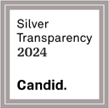Depression is a common mental health disorder that affects millions of people worldwide. Recognizing the signs and symptoms of depression is crucial for early intervention and effective treatment. In this article, we’ll explore the common indicators of depression and discuss various treatment options available to those struggling with this condition.
Common Signs and Symptoms of Depression
- Depression manifests differently in each individual, but there are several key signs and symptoms to watch for:
- Persistent Sadness: A pervasive feeling of sadness, emptiness, or hopelessness that lasts for most of the day, nearly every day.
- Loss of Interest: Diminished interest or pleasure in activities once enjoyed, including hobbies, social interactions, or work.
- Changes in Sleep Patterns: Significant alterations in sleep habits, such as insomnia (difficulty falling or staying asleep) or hypersomnia (excessive sleeping).
- Appetite and Weight Changes: Noticeable changes in appetite, leading to significant weight loss or gain.
- Fatigue: Persistent feelings of tiredness and lack of energy, even after adequate rest.
- Difficulty Concentrating: Trouble focusing, making decisions, or remembering things.
- Physical Symptoms: Unexplained aches, pains, or digestive problems that don’t respond to treatment.
- Feelings of Worthlessness: Excessive guilt or feelings of worthlessness and low self-esteem.
- Thoughts of Death: Recurrent thoughts of death, suicidal ideation, or suicide attempts.
It’s important to note that these symptoms must persist for at least two weeks and cause significant distress or impairment in daily functioning to be diagnosed as clinical depression.
Treatment Options for Depression
Fortunately, depression is a treatable condition, and there are various effective approaches available:
Medication Management
Antidepressant medications can be highly effective in treating depression. Some common types include Selective Serotonin Reuptake Inhibitors (SSRIs), Serotonin-Norepinephrine Reuptake Inhibitors (SNRIs), and atypical antidepressants such as trazodone or mirtazapine.
It’s crucial to work closely with a psychiatrist or healthcare provider to find the right medication and dosage, as individual responses can vary.
Psychotherapy
Talk therapy is a cornerstone of depression treatment. Common approaches include:
- Cognitive Behavioral Therapy (CBT): This therapy helps identify and change negative thought patterns and behaviors.
- Interpersonal Therapy: Focuses on improving relationships and communication skills.
- Psychodynamic Therapy: Explores unconscious conflicts and patterns in relationships.
Combination Approaches
Often, a combination of medication and psychotherapy yields the best results for treating depression.
Lifestyle Changes
Incorporating healthy habits can significantly impact mood and overall well-being:
- Regular exercise
- Maintaining a balanced diet
- Establishing good sleep hygiene
- Practicing stress-reduction techniques like mindfulness or meditation
Take the First Step Towards Healing
Don’t let depression control your life. Reach out to our team today to schedule a consultation with one of our caring providers. Together, we can develop a comprehensive treatment plan to help you regain control of your mental health and rediscover joy in your life.
Seeking help is a sign of strength, not weakness. With the right support and treatment, recovery from depression is possible. Let us be your partner in achieving better mental health and a brighter future.
David Beaman, MD
Attending Psychiatrist
DavidB@RalesJFS.org







